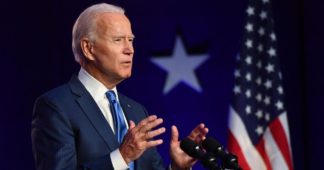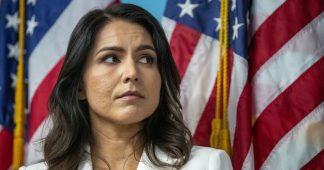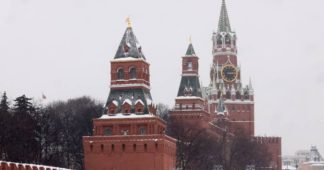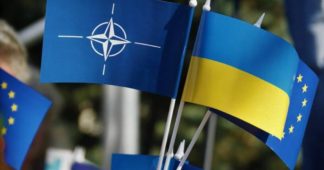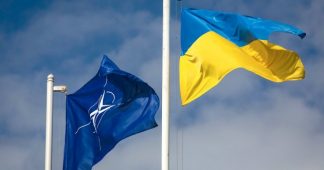Prior to the war, many analysts said it would be reasonable to deny or delay Kyiv’s ascension into the Atlantic Alliance to stave off conflict.
Ben Armbruster
April 14, 2022
A senior Biden administration official recently admitted that prior to the Russian invasion of Ukraine, the United States made no effort to address one of Vladimir Putin’s most often stated top security concerns — the possibility of Ukraine’s membership into NATO.
When asked on a podcast published on Wednesday by War on the Rocks — a U.S. foreign and defense policy analysis website — whether NATO expansion into Ukraine “was not on the table in terms of negotiations” before the invasion, Derek Chollet, counselor to Secretary of State Antony Blinken replied that “it wasn’t.”
Chollet’s remarks confirm suspicions by many critics who believe the Biden administration wasn’t doing enough — including offering to deny or delay Ukraine’s NATO membership — to prevent Russia from launching a war against Ukraine.
“We made clear to the Russians that we were willing to talk to them on issues that we thought were genuine concerns they have that were legitimate in some way, I mean arms control type things of that nature,” Chollet said, adding that the administration didn’t think that “the future of Ukraine” was one of those issues and that its potential NATO membership was a “non-issue.”
“This was not about NATO,” said Chollet, who contradicted himself moments later, saying, “In perpetrating this totally unjustified and unprovoked war, [Putin’s] goal was to try to divide the U.S. from Europe and weaken NATO.”
Of course Putin himself stated publicly many times before the invasion that indeed, Ukraine’s potential NATO membership was a key security concern for Russia.
Weeks before Russia launched its war against Ukraine, Putin claimed that Russia’s concerns about NATO enlargement were being ignored. “We need to resolve this question now … [and] we hope very much our concern will be heard by our partners and taken seriously,” he later said.
War on the Rocks’ Ryan Evans told Chollet that he takes Putin’s claims about NATO “seriously,” adding, “I’m a little struck by the refusal to even talk about the issue of NATO expansion.”
“We talked about NATO in saying that NATO is a defensive alliance. NATO is not a threat to Russia,” Chollet said.
Before the Russian invasion, Quincy Institute senior research fellow on Russia and Europe Anatol Lieven wrote that as part of a broader package to stave off war, the United States should propose “the declaration of a moratorium on Ukrainian membership of NATO for a period of 20 years, allowing time for negotiations on a new security architecture for Europe as a whole, including Russia.”
Published at responsiblestatecraft.org
We remind our readers that publication of articles on our site does not mean that we agree with what is written. Our policy is to publish anything which we consider of interest, so as to assist our readers in forming their opinions. Sometimes we even publish articles with which we totally disagree, since we believe it is important for our readers to be informed on as wide a spectrum of views as possible.
